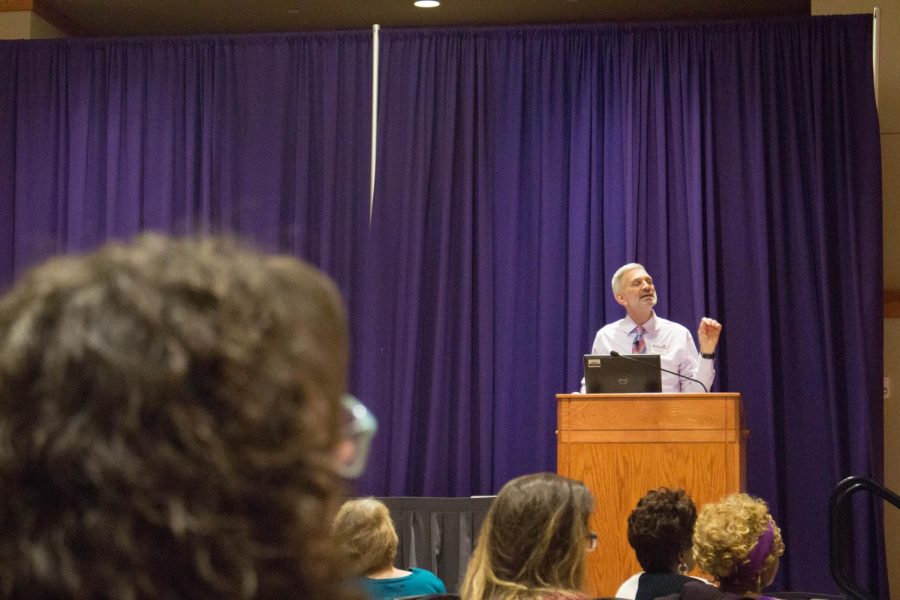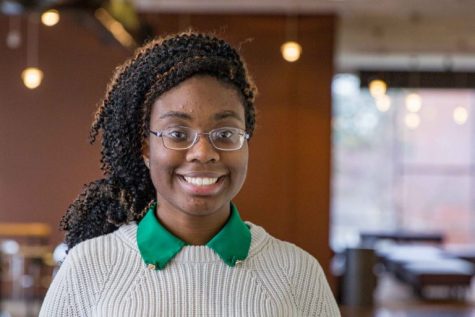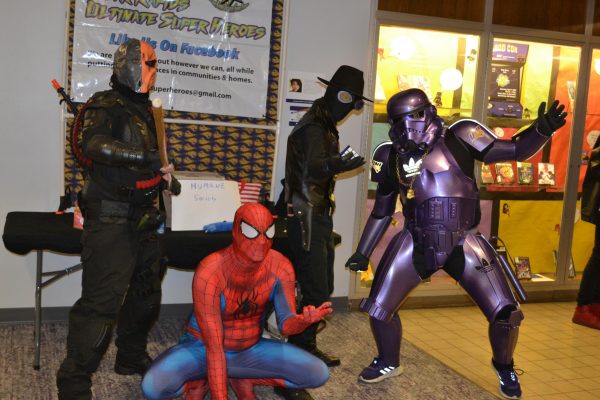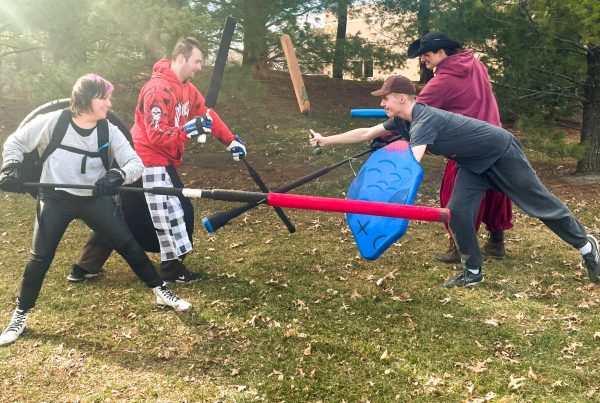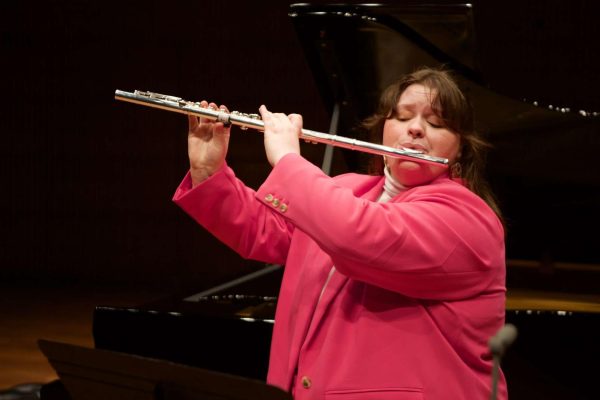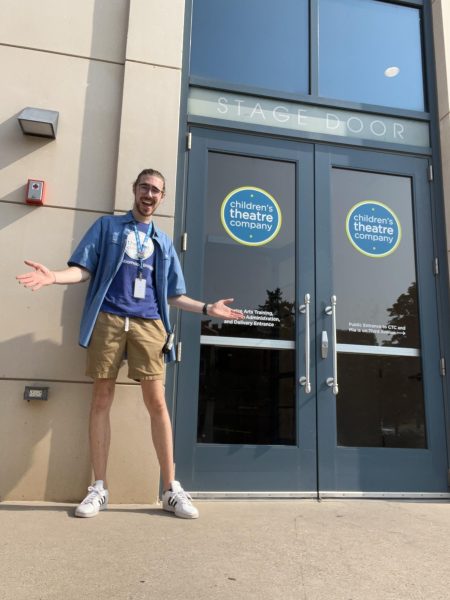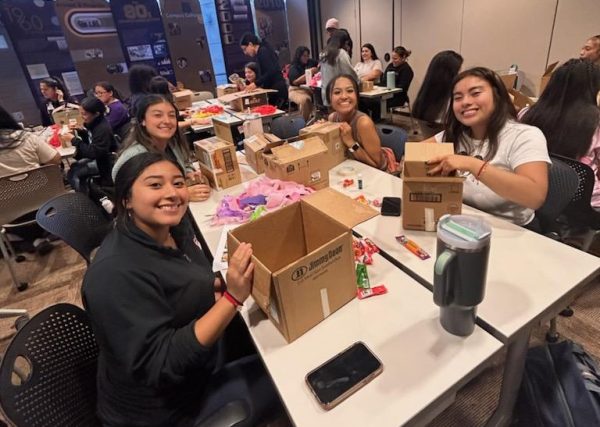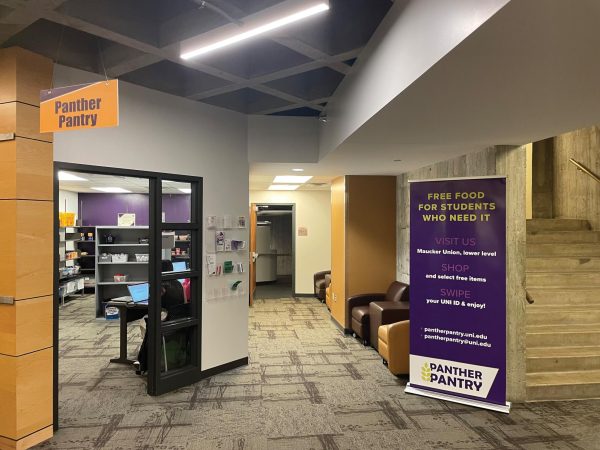Annual PTSD conference returns to UNI
Mar 29, 2018
On Wednesday, Mar. 28, the second annual PTSD Conference was held from 8 a.m. to 3 p.m. The first two speakers presented in the Central Ballroom of the Union, while the breakout sessions were in the lower level of the Union. The UNI Veterans Association (UNI VA) hosted the event.
“Last year we had 145, and we maxed out,” said UNI VA President Cole Passick. “This year, I was expecting around 200.”
All told, roughly 230 people attended the conference.
Last year at the statewide conference, the focus was on defining PTSD. This year the conference focused on recovery from PTSD and other mental health issues.
Dennis Clark was the first speaker. Clark is a certified prosthetist orthotist — someone who makes prosthetic limbs and custom braces — who works for Walter Reed Army Medical Centre.
For his presentation, Clark drew from the examples of his real patients, including a military amputee named Michael. In a video, Michael described his desire for normalcy in spite of his amputation. He wishes he could do simple things like put on his pants or go for for a walk without the struggles that come with being an amputee.
“One of the things we learn at Walter Reed is these are not normal patients. Everybody is Type A to the max,” Clark said. “They’re all competing — with themselves and with each other all the time.”
Clark discussed some of the pros and cons of this competitive nature. Although it can create a lot of frustration early on in the amputee patients, being competitive also helps these amputees on the road to recovery. When they compete with their peers, they often end up learning how to succeed together.
“Each of us can give an example, can give a word of help and praise at anytime,” Clark said. “And that’s critical as we move forward. Healing is a lifetime event.”
Clark also described the importance of having a strong group of physical and occupational therapists, counselors and social workers to help amputees.
“The team creates the outcome. They can’t do it by themselves,” Clark said.
Passick, who is also the event coordinator, introduced the keynote speaker Steven Onken as an international expert in recovery. Onken is also as associate professor is the Department of Social Work at UNI.
“We have many ways of gaining wisdom from many sources. One such source is rediscovering what we know to be true,” Onken explained. “I’m hoping that in terms of how I present this information and integrate this information, it will help you rediscover what you know inside to be true about hope, healing and recovery.”
Onken began his presentation by giving a detailed definition of PTSD.
“[PTSD] is the person’s experience of the event, not the event itself, that is traumatizing,” Onken said.
For the rest of his presentation, Onken focused on recovery.
“Recovery is complex, both the process and desired outcome,” Onken said. “It’s unique. No two people recover the same way. It’s adaptive. People change as they recover. That’s why standard protocols don’t work.”
Despite the complexity of recovery, Onken tried to offer hope to the audience.
“Change is possible,” Onken said. “It’s just incredibly hard.”
After the keynote speaker, conference-goers attended breakout sessions.
“I think that one of the things that’s important is for all people attending to step up in leadership roles — moral leadership,” Onken said. “I think we’re at a point and time in our society where we need people to step forward and help better articulate and secure the coins of resources and attention to the types of challenges that we’re facing today.”
Chuck Xander led the session “Veterans and PTSD.” The session examined how PTSD affects military service members.
Xander said that PTSD is an issue that everyone recovers from differently.
In the forgiveness workshop, Craig Groehn discussed how forgiveness can be a means of therapeutic intervention for those who suffer from PTSD. Groehn examined the moral, emotional and spiritual effects of forgiveness.
“Forgive others not for them but because you deserve peace,” Groehn said. “Sometimes there is no solution but forgiveness and the wisdom that comes from that. That allows people to move on from their lives.”
For her breakout session, Kaylee Michaelson taught about PTSD from sexual assault. The session went in depth about what the survivors of sexual trauma experience.
One topic Michaelson highlighted was tonic mobility.
“They freeze when they’re being sexually assaulted instead of fighting,” Michaelson said.
“Each survivor has their own reactions,” Michaelson said. “They also have their own healing process that they go through. No survivor is the same as another survivor.”
John Scott Dickinson guided a session titled “Post Traumatic Growth.”
“I wanted to communicate a message of hope,” Dickinson said. “That if you have trauma in your life it can make you a better, stronger person in time.”
There was a student panel on PTSD in the ballroom at 12:15 p.m. The panelists discussed how they were diagnosed with PTSD and how it has affected their lives personally and professionally.
One student panelist was Lindsey Wagner, who is a second-year post-graduate student affairs.
“One person with PTSD is one person with PTSD,” Wagner said. “Every individual’s going to have different symptoms, because no two individuals are going to be the same.”
“Next year, we’d like to bring it back and we’d like to see how maintenance is going because the path of recovery is not just a simple thing where you’re broken and you’re fixed,” Passick said. “That’s not how PTSD works.”
“On that pathway to recovery, there’s setbacks,” Passick said. “There’s flashbacks, there’s those things that you can’t account for in life, but what are you doing in your life to maintain that?”
“Conferences like that bring all kinds of people together because trauma can happen to anybody,” Dickinson said. “So to have a conference where you have so many different people with so many different experiences makes it so more powerful.”


